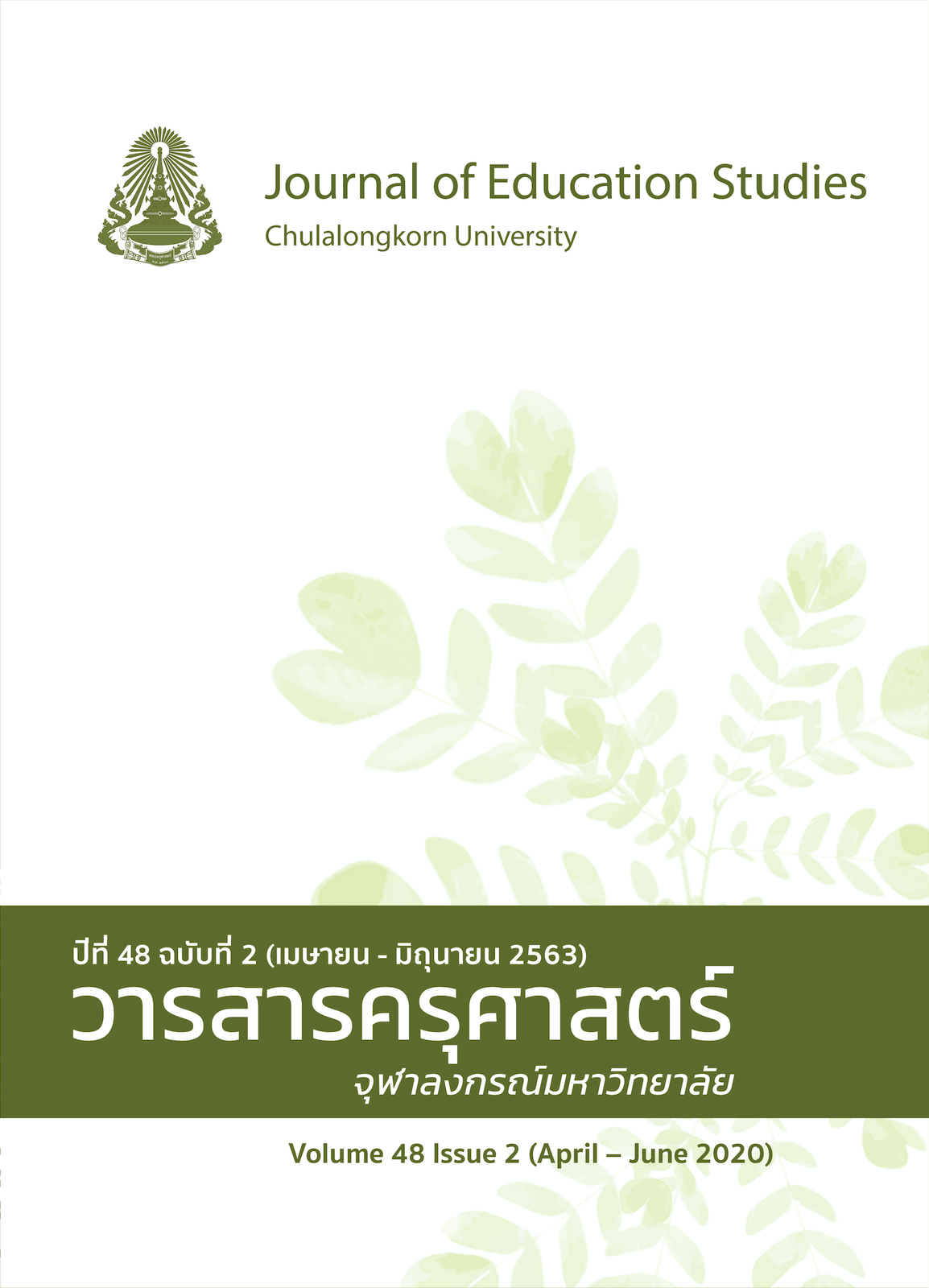Development of Online Training to Enhance Systems Thinking Ability: A Study of Existing Conditions and Expectations
DOI:
https://doi.org/10.14456/educu.2020.62Keywords:
online training, systems thinkingAbstract
This research aims to enhance Systems Thinking (ST) ability into various fields by studying existing conditions and expectations in the context of Flight Attendants’ (FAs) training activities and their current understanding of ST. This study represents the first stage of a Research and Development design research consisting of 5 stages, i.e. needs assessment, analysis, design & development, implementation and evaluation and after literature reviews, quantitative data was collected via questionnaires focusing on frequency, percentage and dual-response data prioritization (Priority Needs Index (PNI)). The questionnaires were handed to 296 FAs from 9 airlines. The results showed that 66.89% of FAs had never received any training other than service, first-aid and safety trainings from their company, 61.15% had misunderstanding of ST characteristics, and the suitable online training method amounted to 28.38%, and blended training classes to 25.34%. The PNI method revealed that the first priority of the opinions of FAs on skill trainings provided by the airlines is the usefulness and applicability to actual work and the first priority of the opinions of FAs on training support provided by the airlines is to provide training courses in various fields of knowledge. The results of this research will lead to the enhancement of Systems Thinking ability of its employees.
References
Behl, D. V., & Ferreira, S. (2014). Systems thinking: An analysis of key factors and relationships. Procedia Computer Science, 36, 104-109. http://dx.doi.org/10.1016/j.procs.2014.09.045
Benson, T. A. (2007). Developing a systems thinking capacity in learners of all ages. http://www.watersfoundation.org/webed/library/articles/Developing-ST-capacity.pdf
Cabrera, D., & Cabrera, L. (2015a). DSRP rules occurs simultaneously. In E. Powers (Ed.), Systems thinking made simple new hope for solving wicked problems (pp. 52-56). Odyssean.
Cabrera, D., & Cabrera, L. (2015b). Perspective rules: Any thing or idea can be the point of the view of a perpective. In E. Powers (Ed.), Systems thinking made simple new hope for solving wicked problems (pp. 64). Odyssean.
Cabrera, D., & Colosi, L. (2008). Distinctions, systems, relationships, and perspectives (DSRP): A theory of thinking and of things. Evaluation an Program Planning, 31, 311-317.
Cabrera, D., & Colosi, L. (2009). Thinking at every desk: Four simple skills to transform your classroom. Norton Books in Education.
Cabrera, D., Colosi, L., & Lobdell, C. (2008). Systems thinking. Evaluation and Program Planning, 31, 299-310.
Carleton College. (2015). Interdisciplinary teaching about Earth for a sustainable future: Teach systems thinking. SERC portal for Educators.
Chang, V. (2016). Review and discussion: E-learning for academia and industry. International Journal of Information Management, 36(3), 476-485. http://dx.doi.org/
10.1016/j.ijinfomgt.2015.12.007
Charoensuk, S. (2014). Development of an e-learning instructional design model to develop critical thinking skills for undergraduate students [Doctoral Dissertation, Chulalongkorn University]. CUIR. http://cuir.car.chula.ac.th/handle/123456789/45888
Chen, C.-F. (2008). Investigating structural relationships between service quality, perceived value, satisfaction, and behavioral intentions for air passengers: Evidence from Taiwan. Transportation Research Part A, 42, 709-717. https://doi.org/10.1016/j.tra.2008.01.007
Clements, J. C. (2015). Using Facebook to enhance independent student engagement: A case study of first-year undergraduates. Higher Education Studies, 5(4), 131-146.
Connell, K. Y. H., Remington, S. M., & Armstrong, C. M. (2012). Assessing systems thinking skills in two undergraduate sustainability courses: A comparison of teaching strategies. Journal of Sustainability Education, 3, 1-15.
Cuison, P. F. (2016). Learning management system: A critical study. [Paper presentation]. International Conference on Cross-Border and Borderless Education, Bangkok.
Czarnecki, K. (2012). What is systems thinking? The interactive components of video games are perfect examples. School Library.
de Savigny, D., & Adam, T. (2009). Systems thinking for health systems strengthening. http://www.who.int/alliance-hpsr/resources/9789241563895/en/
Douglas, K., & Kerfoot, K. (2008). Applying systems thinking model for effective staffing. Nurse Leader, 6(6), 52-55.
Faezipour, M., & Ferreira, S. (2013). A system dynamics perspective of patient satisfaction in healthcare. Procedia Computer Science, 16, 148-156. http://dx.doi.org/10.1016/j.procs.2013.01.016
Ferreira, P. (2001). Systems in transportation: The case of the airline industry. http://web.mit.edu/esd.83/www/notebook/ESD83-Airlines.doc
Ferreira, S., & Faezipour, M. (2012). Advancing the development of systems engineers using process simulators. Procedia Computer Science, 8, 81-86. http://dx.doi.org/10.1016/j.procs.2012.01.017
Google. (2015). Introducing classroom. https://www.google.com/intl/en_uk/edu/classroom/
Herried, C. F. (1997-1998). What makes a good case? Some basic rules of good storytelling help teachers generate student excitement in the classroom. Journal of College Science Teaching, 27(3), 163-165.
Hummelbrunner, R. (2008). Response to paper "Systems Thinking" by D. Cabrera et al.: A tool for implementing DSRP in prgramme evaluation. Evaluation an Program Planning, 31, 331-333.
Iftakhar, S. (2016). Google classroom: What works and how?. Journal of Education and Social Sciences, 3(Feb), 12-18.
Kaemmanee, T. (2008). Learning & teaching styles. Chulalongkorn University.
Khlaisang, J. (2012). E-learning courseware. Chulalongkorn University.
Kuanhavej, B. (2000). Educational innovation (Vol. 5). Department of Educational Technology, Faculty of Education, Srinakharinwirot University.
Downloads
Published
How to Cite
Issue
Section
License

This work is licensed under a Creative Commons Attribution-NonCommercial-NoDerivatives 4.0 International License.




